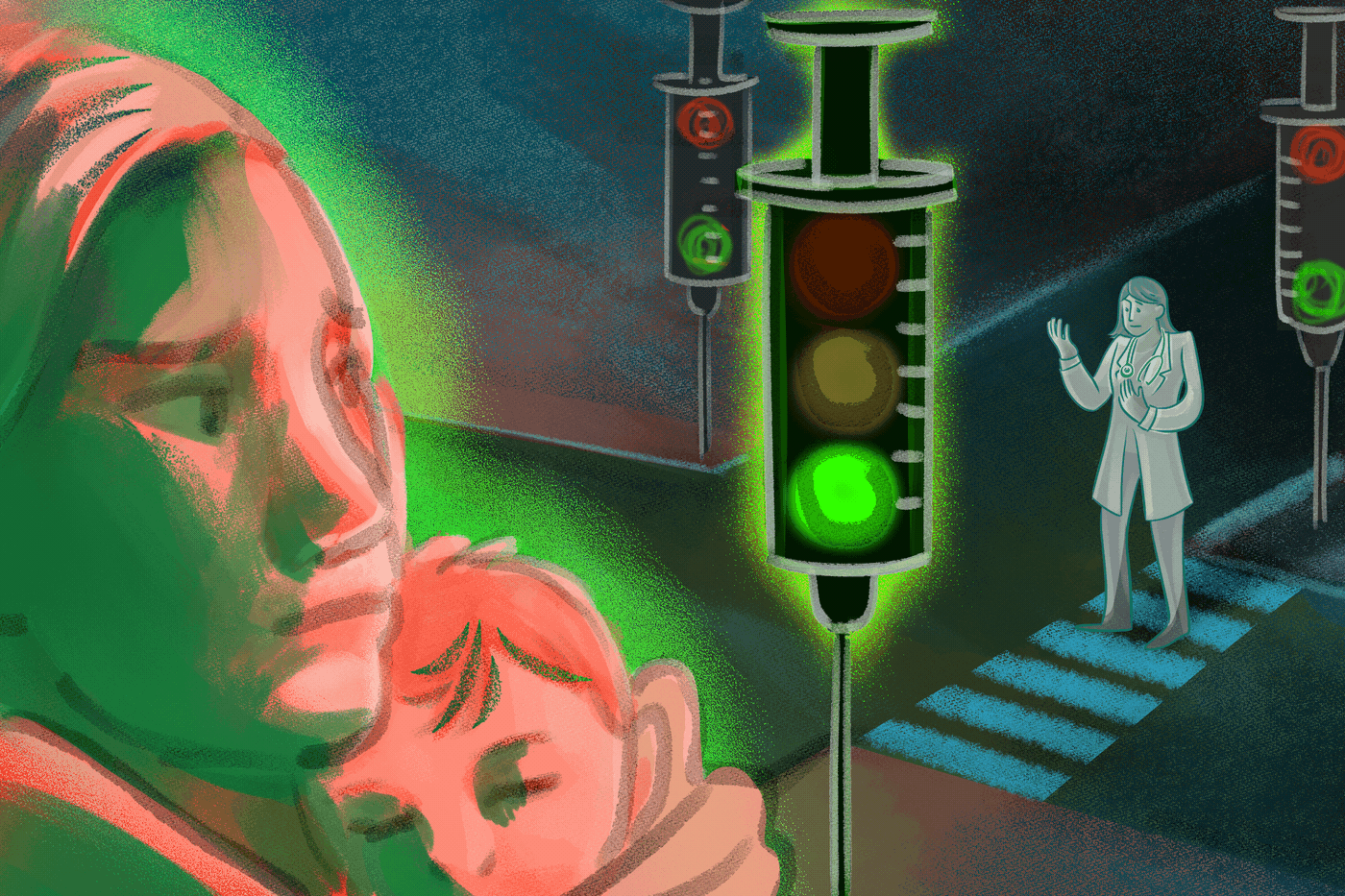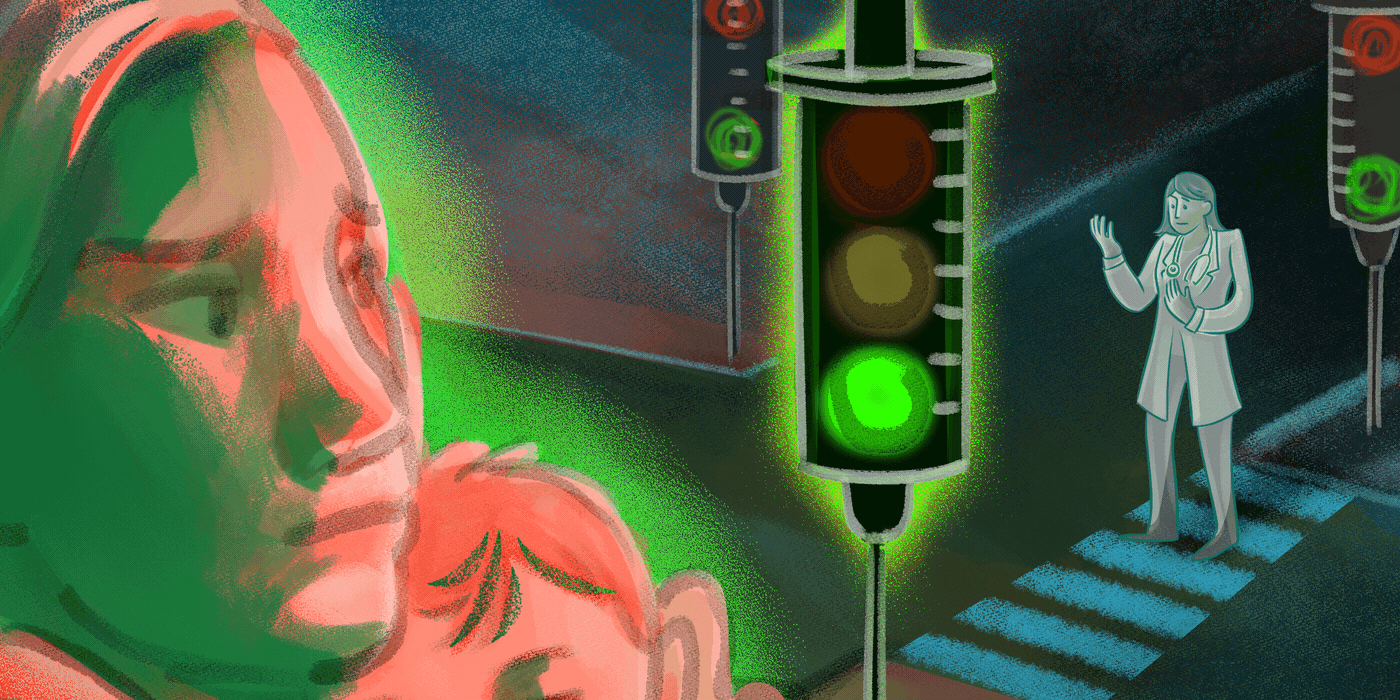 In these trying times, we are scared for our lives, our loved ones, health care workers, and those families experiencing the financial impact of this crisis. As I watch the news, I hear reporters discussing how there are currently over 100 vaccine candidates for COVID-19. So many individuals are anxiously waiting for a vaccine, a vaccine not only for the virus, but also for their peace of mind as they resume daily activities. Among those waiting for vaccines are the parents that have continuously refused to vaccinate their children because of falsified data spread on the internet.
In these trying times, we are scared for our lives, our loved ones, health care workers, and those families experiencing the financial impact of this crisis. As I watch the news, I hear reporters discussing how there are currently over 100 vaccine candidates for COVID-19. So many individuals are anxiously waiting for a vaccine, a vaccine not only for the virus, but also for their peace of mind as they resume daily activities. Among those waiting for vaccines are the parents that have continuously refused to vaccinate their children because of falsified data spread on the internet.
I distinctly remember my first unvaccinated child in my pediatrics rotation. My attending warned me beforehand that the mother did not vaccinate her child and gave me a recap of the lengthy discussions they’d already had. As in every patient visit, I gathered the history: Jessica was a 4-year-old female who had been experiencing a dry cough for the past three months. She did not have a history of asthma or reflux. Pertussis was haunting my differential and I was greatly relieved when I heard the mild wheezing in her lungs. My attending and I agreed it was likely the onset of asthma.
At the end of the visit, I opened a discussion with the mother.
“I see your daughter has not received vaccinations. I’m worried she might be vulnerable to serious infection that could put her and her peers at risk. Did she have a reaction to any vaccines?”
Her mother responded, “No, she has an exemption from vaccines.” She further explained that she was confident her daughter did not need vaccines because everyone else at school was vaccinated. “I’ve discussed this with the doctor already,” she said.
In my heroic attempt to debunk her idea of herd immunity, I explained that it was likely that she was not the only parent feeling this way and, as a result, there were possibly several students in her daughter’s school who were unvaccinated.
At the end of the visit, her daughter went home unvaccinated … again. It irked me that in discussing the benefits of vaccines and attempting to debunk myths, my expertise went in one ear and out the other.
Today, I’m still troubled by parents who do not vaccinate their children. In examinations, we are repeatedly tested on circumstances in which the decisions of parents can be overruled. Jessica’s vaccine exemption was not going to harm her acutely, but if she picked up a disease and spread it to unvaccinated children around her, many lives would be at stake. Her case does not fall under the Emergency Exception rule, but the damage could be potentially greater than in an emergency situation.
As a medical student, I have had several discussions with parents who felt similarly to Jessica’s mother. Many of these parents market their disbelief of vaccinations as a religious preference, but their words suggest only mistrust in the science. Parents regularly file for non-medical exemptions using their personal interpretations of religious doctrines to make a case for personal exemption. These sorts of exemptions have been outlawed in five states — and in those states, medical exemptions are being considered with greater flexibility, leading to minimal change in vaccination rates. For example, California outlawed non-medical exemptions in 2015, but because of various loopholes, there has only been a slight increase in vaccination rates.
Laws aside, I believe vaccinating children is a matter of medical ethics. Our duty as physicians is to “first, do no harm,” yet here we are, allowing children to go unvaccinated, prone to deadly infections. Beneficence, another basic principle of medicine, essentially means to do good. In my opinion, if we consistently deprive children of the opportunity for a healthy future, we are failing to do good for them. The fallout is millions of avoidable deaths. Take the data on measles as an example. Statistics from the WHO show that vaccination decreased measles-related deaths by 73% between 2000 and 2018 worldwide. The number speaks for itself.
Even with new laws and updated guidelines, there are still cases wherein an exemption would be justified. For example, if Jessica had a serious adverse reaction to a vaccine, then she definitely should not get the vaccine. I believe there are even some vaccines that are not necessary for everyone. But aside from those exceptions, vaccines have saved and continue to save millions of lives.
As a nation, we must come together and build guidelines for ensuring that children receive vaccinations. Human life is the highest priority in medicine, and it is unacceptable to ignore the lives at stake.
Nidhi Desai is a graduating medical student at Florida State University College of Medicine; she matched into diagnostic radiology. Nidhi has a specific interest in pediatric radiology because of its prominent role in cases against child abuse.
All names and identifying information have been modified to protect patient privacy.
Illustration by April Brust
Click here to see more perspectives on COVID-19 from the Doximity network.
Click here for up-to-date news about COVID-19 on Doximity.






